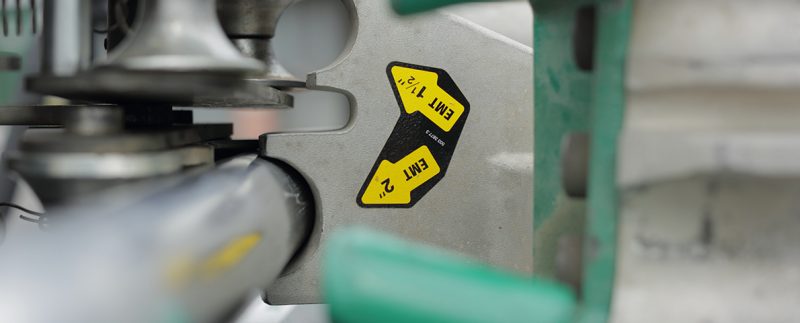Electrical conduit for distribution centers from American Conduit is critical for companies around the world. Our conduit helps power critical operations such as storage, sorting, and shipping, where ensuring safety and compliance is key. Our electrical conduit systems enhance safety and compliance by providing a protective enclosure for electrical wiring and components, shielding them from physical damage, environmental hazards and electromagnetic interference.
 Distribution facilities can create a safe and compliant environment for workers, equipment, and property by adhering to regulatory standards and implementing best practices in electrical conduit installation and maintenance. The following is some information on how electrical conduit enhances safety and compliance in distribution facilities and the key considerations for achieving these objectives.
Distribution facilities can create a safe and compliant environment for workers, equipment, and property by adhering to regulatory standards and implementing best practices in electrical conduit installation and maintenance. The following is some information on how electrical conduit enhances safety and compliance in distribution facilities and the key considerations for achieving these objectives.
Protection Against Physical Damage
Distribution facilities are busy environments with heavy equipment, moving parts and potential hazards that pose risks to electrical wiring and components. Our conduit systems provide a durable and protective enclosure that shields wiring from physical damage caused by impact, abrasion and other hazards. By routing electrical cables through conduit pathways, distribution facilities can prevent accidental contact, crushing or puncturing of wires, reducing the risk of electrical faults, fires and injuries. Our conduit systems also help organize and manage cables, minimizing clutter and trip hazards in busy work areas.
Mitigation of Environmental Hazards
Moisture, dust, temperature fluctuations and chemical exposure, compromise the integrity and performance of electrical systems. American Conduit products offer environmental resilience, protecting wiring from moisture, corrosion and contamination. Whether indoors or outdoors, in warehouses or loading docks, our conduit systems provide a barrier that safeguards electrical connections from the elements, ensuring reliable and safe operation in harsh conditions. They help maintain the longevity and reliability of electrical infrastructure in distribution facilities.
Compliance with Electrical Codes and Standards
Adherence to electrical codes and standards is essential for ensuring the safety and compliance of distribution facilities. Regulatory bodies such as the National Electrical Code (NEC), Occupational Safety and Health Administration (OSHA), and National Fire Protection Association (NFPA) establish guidelines and requirements for electrical installations, including provisions for conduit usage, sizing, and installation practices.
Distribution facilities can demonstrate their commitment to safety and regulatory compliance by complying with these standards and implementing industry best practices in conduit installation. Regular inspections and maintenance checks help ensure that conduit systems remain in compliance with applicable codes and standards, minimizing the risk of violations and penalties.
Facilitation of Equipment Maintenance
Last but definitely not least, distribution facilities rely on efficient and reliable electrical systems to power conveyor belts, sorting machines forklifts, and other equipment essential for daily operations. Electrical conduit facilitates equipment maintenance by providing a clear and accessible pathway for inspecting, troubleshooting and repairing wiring and components. With conduit systems, maintenance personnel can easily trace circuits, identify faults, and make repairs without disrupting workflow or risking safety. This accessibility enhances operational efficiency and reduces downtime associated with equipment maintenance, ensuring uninterrupted productivity in distribution facilities.
With electrical conduit, distribution facilities can minimize risks, ensure regulatory compliance and maintain reliable and efficient operations in today’s fast-paced distribution industry. The experts with American Conduit invite you to get in touch with us to learn more how about our products promote safety and compliance. You can use our online contact form for more information, or you can give us a call at 1-800-334-6825.

